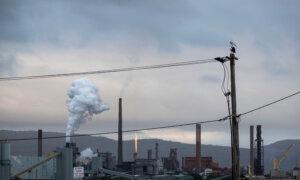The policy aims to support Australia’s transition toward a circular economy.
The Australian government has released its first environmentally sustainable procurement policy to promote domestic demand for recycled goods, reduce waste output, and support the country’s transition toward a “circular economy.”
Starting July 1, bidders for government construction services projects exceeding $7.5 million (US$4.9 million) must satisfy specified sustainability outcomes; these could involve reducing or reusing waste and switching to recyclable materials in place of single-use materials.
After a year, the policy will extend to tenders worth more than $1 million for textiles, Information and Communication Technology (ICT) goods, and furniture, fittings and equipment. It may include recovering, recycling, and reworking old uniforms into new materials.
The Department of Climate Change, Energy, the Environment and Water chose the projects due to their significant impacts on nature and their potential to provide work for Australia’s domestic recycling sector.
“At its heart, this policy is about delivering a future remade in Australia—remaking, remanufacturing and recycling more goods to boost jobs while better protecting the environment,” Minister for the Environment and Water Tanya Plibersek MP said. “It’s a win for business, and a win for the environment.”
In the first year of implementation, the policy is expected to apply to two percent of Australian government construction services procurement contracts, encompassing 50 percent of the total value of all said contracts.
The government will use verification measures in place to track environmental results. Currently, about 60 percent of the government’s suppliers are already collecting sustainability data for their products.
Until this policy, Australia had not benchmarked its progress towards a circular economy aside from its national waste reports, which do not sufficiently capture the broader aspects of the circular economy transition.
The procurement policy follows the April 2024 interim report of the Circular Economy Ministerial Advisory Group, chaired by Professor John Thwaites AM.
The report includes recommendations for supporting the country’s domestic manufacturing capabilities by promoting local production and practising the reuse, repair, and recycling of goods.
It also stresses minimising dependence on new, emissions-intensive products by efficiently using extant materials in the economy.
“Our recommendations will incentivise innovation and shape new markets for circular economy products,” Mr. Thwaites stated. “Industry has told us that they want clear regulation that supports recycling and the circular economy and gives businesses the confidence to invest.”
The interim report also recommended the establishment of a Productivity Commission Inquiry, developing a National Circular Economy Framework, introducing a national “recycled content first” policy and developing sector-based circular economy targets and principles.
Engineers Australia CEO Romilly Maadew commended the efforts of the Australian government, agreeing that the circular economy transition and the procurement policy will safeguard the planet for future generations while simultaneously fostering economic prosperity.
“We advocate for regulatory frameworks that foster circularity, addressing priority issues like strategic policy setting and economic leverage for circular markets,” Ms. Maadew said.
Earlier, the federal government launched the Future Made in Australia Act to strengthen domestic manufacturing and the Sunshot program to boost the production and distribution of solar panels nationwide.
Both initiatives are expected to contribute to Australia’s aim to achieve net zero emissions by 2050.














 English (US) ·
English (US) ·  Turkish (TR) ·
Turkish (TR) ·